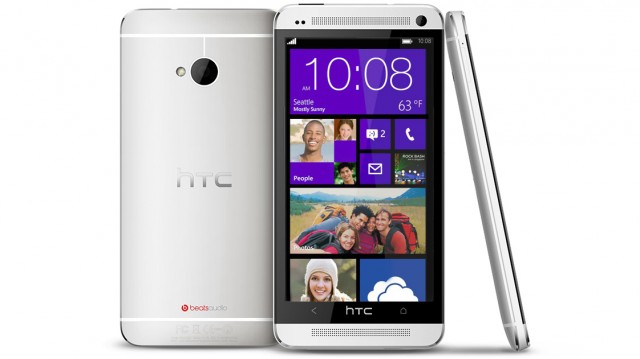Form an orderly queue for your free Windows Phone license.
by Jason Inofuentes

Just a mock-up, but awfully pretty.
Aurich Lawson
It's hard to see an area at Microsoft that isn't going through some degree of transition, and Windows Phone is definitely no exception. Having carved out a small piece of the market, Microsoft has taken some big steps to improve the position of its still fledgling mobile operating system. Its first step was to develop a close relationship with Nokia; the second step seems to have been to buy Nokia's handset division outright. But that move has spawned much speculation that Microsoft's handset partners are disgruntled and considering eliminating their Windows Phone portfolio. According to a report from Bloomberg, Microsoft may be making a big move to stem the tide by cutting or eliminating its licensing fee.
Bloomberg reports that conversations between HTC and Microsoft have revolved around the idea of HTC putting Windows Phone onto its Android handsets as an alternative. It's unclear how this would work, but it could mean that users would choose a handset model and then choose an operating system, similar to being able to choose between Windows and Linux in some notebook models. The prospect of a dual boot solution seems ludicrous and impossible to implement, but Bloomberg's reporting leans strongly in that direction. As enticement to pursue this strategy, the report states that Microsoft has offered to cut or eliminate the licensing fee.
Whether it's a dual boot solution or something more sensible, the move would require Microsoft to broaden the supported hardware specifications of Windows Phone to support the higher-end hardware that's de rigueur in Android handsets. Evidence for such an expansion of hardware support can be gleaned from the near certainty that this fall's GDR3 update to Windows Phone will include options for 1080p displays.
Microsoft has long derided the free operating system strategy, even going so far as to brag that licensing issues with Android have resulted in handset manufacturers needing to negotiate licensing deals with it—effectively saying that Android isn't free, it's just that Microsoft collects the money. For Microsoft to eliminate the licensing fee for Windows Phone would be a huge shift in strategy and might help revive the somewhat dormant Windows Phone lines from the likes of Samsung or HTC. At the same time, it would help repair any damaged relationships that Microsoft may have incurred in becoming a first-party handset manufacturer with the purchase of Nokia.
HTC may be a ripe target for such a deal. Its unaudited quarterly results, announced yesterday, demonstrate how tough things have been financially. After laying off a big chunk of its US staff, HTC reported a quarterly loss for the first time in the company's history. While it has had some design wins with the HTC One and One mini handsets, it has also had its share of weak spots, including the HTC First handset, which it made in partnership with Facebook. The last Windows Phone handset that HTC released was the HTC 8XT, a decidedly mid-range handset that hasn't delighted users the same way last year's HTC 8X did.
At press time, neither HTC nor Microsoft had any comment regarding these rumors, though Microsoft's representative did stress that conversations with their device partners are confidential. We will report further as this story develops.










